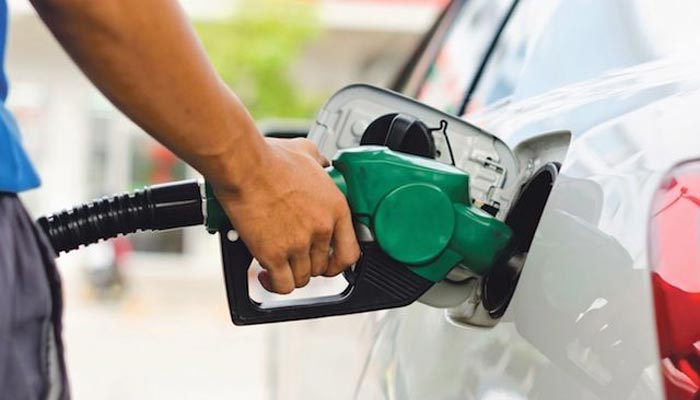The UAE is shifting from a system of fixed, subsidised fuel prices to one of adjusting prices monthly in response to global trends.
Reuters/Dubai
The United Arab Emirates has become the first Gulf state to take a major step towards taming the gas-guzzling habits of its drivers, who see cheap fuel as part of their birthright.
The UAE said it would raise domestic prices for gasoline and cut them for diesel in a politically sensitive reform designed to save it money and encourage fuel efficiency.
State subsidies have long kept domestic fuel prices at some of the lowest in the world - part of the welfare packages which Gulf governments offer in their drive to maintain social stability.
This has led to a preference for huge sports utility vehicles, and the subsidy costs have become harder to bear for governments since last year's global oil price plunge slashed energy export revenues.
The International Monetary Fund projects the UAE will post its first fiscal deficit this year since 2009, and estimates the country spends $7bn annually on petroleum subsidies.
So this month, the UAE said it was shifting from a system of fixed, subsidised fuel prices to one of adjusting prices monthly in response to global trends. It did not reveal details of its new formula or say whether subsidies would be removed entirely, but announced that prices would be "based on the average global prices with the addition of operating costs".
The price of a litre of octane 95 gasoline will climb 24% to 2.14 dirhams (58 US cents) at the start of August, while diesel will fall 29% to 2.05 dirhams, state news agency WAM reported on Tuesday.
The moderate size of the price changes suggests there will be little immediate impact on domestic consumption. Demand in the UAE has more than doubled since 2009 to reach almost 400,000 barrels per day last year, according to the Joint Oil Data Initiative which compiles figures from governments worldwide.
Big impact unlikely
Consultants at Strategy& said the changes were unlikely to have a big impact on UAE inflation or economic growth, as cheaper diesel would offset more expensive gasoline.
But the new system appears to pave the way for substantial fuel price hikes in future if Brent crude, now below $53 per barrel, near six-year lows, eventually starts to recover.
The system "will help decrease fuel consumption and preserve natural resources for future generations", UAE Energy Minister Suhail bin Mohammed al-Mazroui said last week.
"It will also encourage individuals to adopt fuel-efficient vehicles, including the use of electric and hybrid cars."
The reform puts the UAE at the forefront among Gulf states in pushing through reforms to curb spending and raise new revenue in an era of cheap oil. Abu Dhabi, the UAE's biggest emirate, hiked electricity and water tariffs in January.
The big question for world oil markets is whether other Gulf economies may now follow the UAE's example - particularly much bigger Saudi Arabia, where domestic oil consumption is over five times the UAE's level and gasoline at only about 15 US cents per litre, according to globalpetrolprices.com.
"The removal of transport fuel subsidies in the United Arab Emirates may set a positive fiscal precedent for other sovereigns in the region, including those where the public finances are under more pressure," credit rating agency Fitch said in a report.
No Saudi sign
There has been no sign so far of Saudi Arabia taking such a step. Although top officials such as the central bank governor have called for eventual reform of energy subsidies, a significant proportion of Saudi citizens have low incomes, in contrast to the UAE. This could make raising fuel prices politically much more difficult.
Some smaller Gulf states may be emboldened to act, however. Kuwait raised domestic diesel and kerosene prices in January, though it partially reversed the hikes a few weeks later after criticism by some members of parliament.
Officials are now reviewing a range of subsidies, including those for gasoline, and Kuwait's Al-Nahar daily quoted unnamed government sources this week as saying the finance ministry was proposing to raise gasoline prices about 50% by next April. Ministry officials could not be reached for comment.
Qatar does not appear to be under serious pressure to economise but in the two financially weakest states among the Gulf oil exporters, the small economies of Oman and Bahrain, reforms may be imminent.
Oman has been studying the possibility of cutting gasoline subsidies, after reducing natural gas subsidies for industrial users in January.
Bahrain has also raised natural gas prices for industry and has been looking at a range of other subsidy cuts, though implementation has been delayed because parliament balked at the changes and insisted on having more influence on the process.

